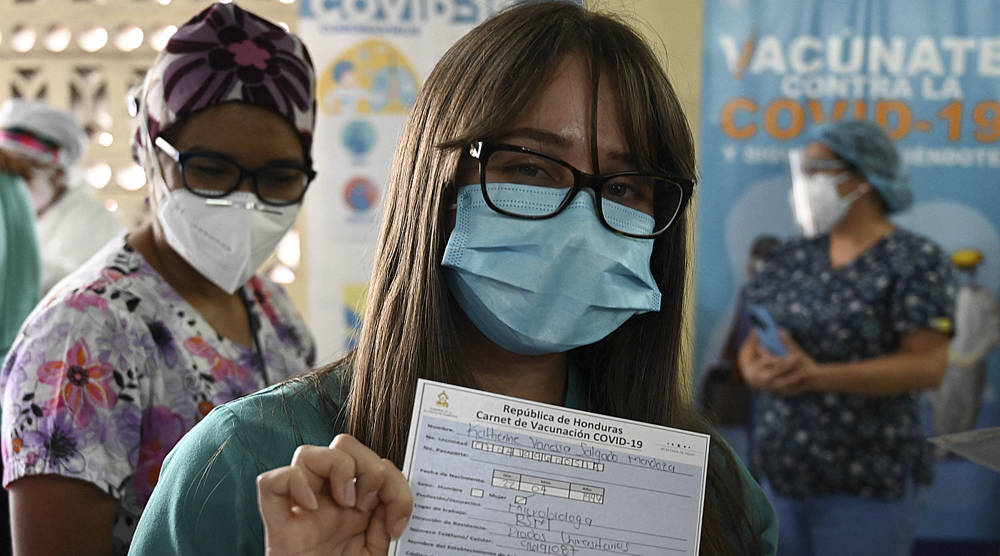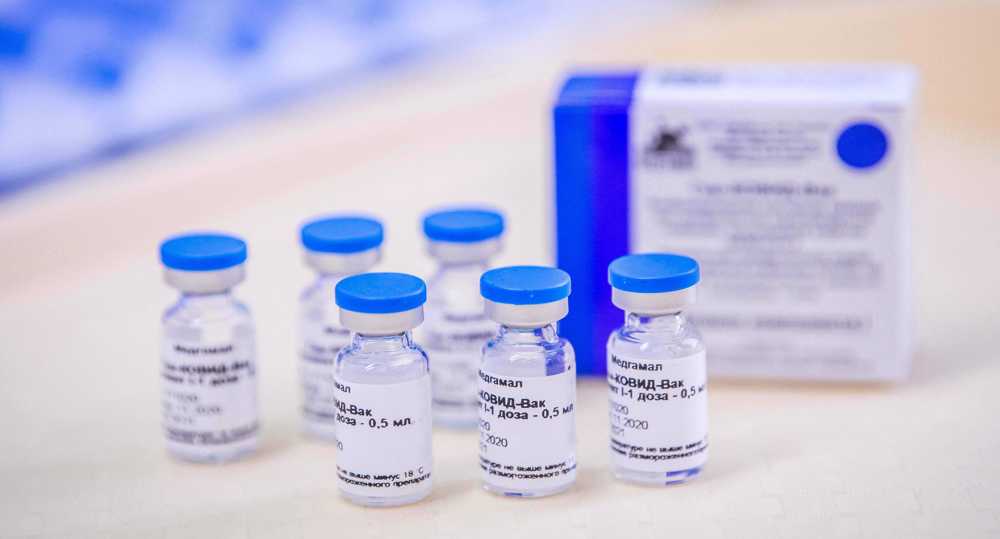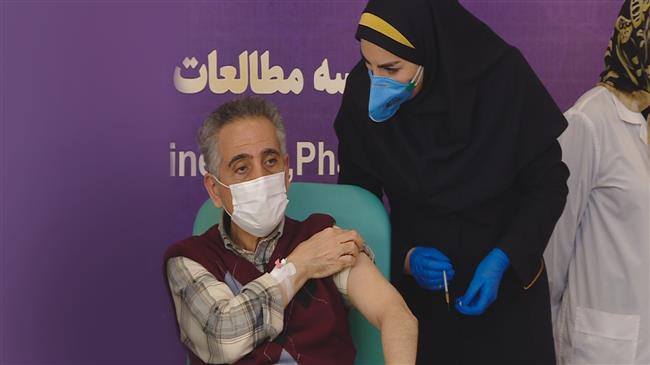WHO warns against cessation of vaccination, as countries halt use of AstraZeneca
The World Health Organization appealed to countries on Monday not to pause vaccination campaigns, after several nations suspended the use of AstraZeneca’s shot to probe possible side effects.
WHO chief scientist Soumya Swaminathan said on a virtual media briefing on Monday that there have been no documented deaths linked to the inoculation campaign.
“We do not want people to panic,” she said, adding there has been no association, so far, found between so-called thromboembolic events reported in some countries and COVID-19 shots.
AstraZeneca’s shot was among the first and cheapest to be developed and launched at volume since the coronavirus was first identified in central China at the end of 2019 and is set to be the mainstay of vaccination programs in much of the developing world.
Concerns over the vaccine rollout came after the European Medicines Agency (EMA) said that as of March 10, a total of 30 cases of blood clotting had been reported among close to 5 million people vaccinated with the AstraZeneca shot in the European Economic Area, which links 30 European countries.
Germany, France and Italy said on Monday they would suspend AstraZeneca shots.
Still, the decision by the European Union’s three biggest countries to put inoculations with the AstraZeneca shot on hold threw the already struggling vaccination campaign in the 27-nation EU into disarray.
Denmark and Norway stopped giving the shot last week after reporting isolated cases of bleeding, blood clots and a low platelet count.
Iceland and Bulgaria followed suit and Ireland and the Netherlands announced suspensions on Sunday.
Spain will stop using the vaccine for at least 15 days, Cadena Ser radio reported, citing unnamed sources.
Cyprus also suspended AstraZeneca shots for COVID-19 on Monday pending a review by the EMA, its health ministry said.
Cyprus’ inoculation program with vaccines from Pfizer/BioNtech and Moderna will continue, the health ministry said.
There have been no publicly reported cases of any side effects from the AstraZeneca vaccine in Cyprus.
WHO chief Tedros Adhanom Ghebreyesus said an advisory committee meeting on AstraZeneca would be held on Tuesday.
EMA will also convene this week to assess the information gathered into whether the AstraZeneca shot contributed to thromboembolic events in those inoculated.
The moves by some of Europe’s largest and most populous countries will deepen concerns about the slow rollout of vaccines in the region, which has been plagued by shortages due to problems producing vaccines, including AstraZeneca’s.
Germany warned last week it was facing a third wave of infections, Italy is intensifying lockdowns and hospitals in the Paris region are close to being overloaded.
German Health Minister Jens Spahn said that although the risk of blood clots was low, it could not be ruled out.
“This is a professional decision, not a political one,” Spahn said, adding he was following a recommendation of the Paul Ehrlich Institute, Germany’s vaccine regulator.
France said it was suspending the vaccine’s use pending an assessment by EMA.
Italy said its halt was a “precautionary and temporary measure” pending EMA’s ruling.
“The EMA will meet soon to clarify any doubts so that the AstraZeneca vaccine can be resumed safely in the vaccination campaign as soon as possible,” said Gianni Rezza, director general of prevention at Italy’s Ministry of Health.
The director general of Italy’s medicines authority, AIFA, said on Tuesday that the decision to suspend the use of AstraZeneca in his country was a “political one.”
“We got to the point of a suspension because several European countries, including Germany and France, preferred to interrupt vaccinations... to put them on hold in order to carry out checks. The choice is a political one,” Nicola Magrini told the la Repubblica daily in an interview.
Magrini said that the AstraZeneca vaccine was safe and that the benefit-to-risk ratio of the jab is “widely positive.” There have been eight deaths and four cases of serious side-effects following vaccinations in Italy, he added.
AIFA will take two to three days to collect all required data and once “doubts are cleared we can carry on at a faster speed than before,” Magrini said.
The United Kingdom said it had no concerns, while Poland said it thought the benefits outweighed any risks.
Michael Head, a senior research fellow in global health at the University of Southampton, said the decisions by France, Germany and others looked baffling.
“The data we have suggests that numbers of adverse events related to blood clots are the same (and possibly, in fact lower) in vaccinated groups compared to unvaccinated populations,” he said, adding that halting a vaccination program had consequences.
“This results in delays in protecting people, and the potential for increased vaccine hesitancy, as a result of people who have seen the headlines and understandably become concerned,” Head said.
“There are no signs yet of any data that really justify these decisions,” he added.
Thailand became the first country outside Europe to delay rolling out the vaccine on Friday, when its political leaders were due to have the first shots, but the government said on Monday they would receive the AstraZeneca vaccine on Tuesday.
Indonesia, however, said it would delay administering the shot due to the reports of blood clots among some recipients in Europe and would await a review from the WHO.
In Latin America, Venezuela will not authorize AstraZeneca’s COVID-19 vaccine, Vice President Delcy Rodriguez said on Monday, citing unspecified “effects on patients.”
Venezuela has so far used Russia’s Sputnik V and China’s Sinopharm in its vaccination program.
(Source: Agencies)
'Next to impossible' to rescue patients from Gaza's Kamal Adwan Hospital: Director
VIDEO | Vietnam current prosperity
Report blames gasoil exports for shortage at Iranian power plants
VIDEO | Hind Rajab Foundation names Israeli war criminals vacationing after Gaza genocide
VIDEO | Australians rally for Gaza ahead of Christmas festivities
VIDEO | Attacks on Sana'a
Iran reports further drop in annual inflation rate in December
Israel indicts two settlers over suspected spying for Hezbollah













 This makes it easy to access the Press TV website
This makes it easy to access the Press TV website